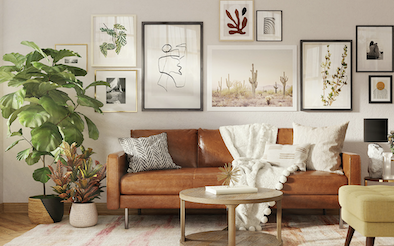The Basics of Premises Liability Claims
Oct 07, 2023 00:37
Various types of personal injury law exist. Car accident cases and product liability are two common forms of personal injury law. Premises liability is another common type of personal injury law.
Premises liability is a broad category that covers claims that arise from people being injured on the property of others. Whether you are talking about injuries at a private residence or a local business, it falls under premises liability.

The general idea is that property owners have a duty to maintain property that is safe for others. When they fail in this duty, and someone suffers an injury, they can be sued under a premises liability claim for compensation.
This post will cover the basics of premises liability claims.
The Basics Elements
There are three basic elements to a premises liability claim. The first is that a dangerous condition exists on the property. After that, the property owner (or occupant) must have been negligent in some way. Thirdly, said negligence resulted in the victim suffering an injury.
A common example would be a store that fails to clear ice from a walkway in winter. The slippery ice is a dangerous condition on the property. A failure to clear the ice is negligence. If a person slips and falls, it could result in an injury.
Common Types of Premises Liability Claims
With so many different types of properties and hazards that could exist, there are many different types of premises liability claims. The following are a few of the more common premises liability issues that may result in lawsuits:
• Slips and Falls: Slips, trips, and falls are common accidents. Maybe there was a slippery substance on the floor or a tripping hazard left on the ground.
• Animal Attacks: Dangerous animal attacks can lead to premises liability claims. Dog bites are the most common form of animal attack leading to lawsuits.
• Pool Accidents: Poor swimming pool safety and pool accidents can lead to claims. It could be something like not having a sufficient fence to exclude unsupervised children from the pool area.
• Falling Objects: If an object falls on someone, the property owner could be subject to a lawsuit. An example could be an object falling off a high shelf in a store.
• Lack of Security: Property owners often have an obligation to protect people from crime. For example, the owner of a building might need to install cameras or sufficient lighting to prevent crime in the parking lot.
• Poor Maintenance: Improper maintenance can also be a cause for premises liability claims. For example, poorly maintained stairs could result in a person falling.
These are just some of the more common types of claims that fit under the category of premises liability.
Status of Injury Victim
Another issue is the status of the injured party. The relevant question is why they entered the property. In this regard, the law generally breaks victims into three categories: invitees, licensees, and trespassers.
• Invitees: As the name suggests, an invitee is a person invited onto the property. This includes people with an express or implied invitation. It is usually people invited for some benefit to the property owner. For example, it includes the customers at a retail store.
• Licensees: A licensee is a person given permission to be on the property, but there’s usually no beneficial purpose for their presence. This category includes people the owner invites over as house guests.
• Trespassers: Trespassers are people who enter a property without express or implied permission. As you might guess, property owners have fewer obligations to protect the safety of a trespasser.
Another point to consider is the status of children. A child usually is not considered to have the same legal responsibility for their safety as an adult. For that reason, property owners may still have a duty to protect children in situations where they would not have the same duty to an adult.
Negligence and Reasonable Care
Negligence is one of the fundamental elements of a premises liability claim. However, there is also the question of reasonable care. Most places follow the standard of the property owner having to take reasonable care to guard the safety of people on the property.
In simple terms, this means the property must have known about the condition or should have known for there to be negligence. Along with that, the owner must have failed to do what a reasonable person would have done to protect the safety of others.
Another point is potential liability on the part of the injured party. In some cases, the injured person might be at fault. For example, the owner might know of a dangerous condition, but they took steps to warn or protect guests. In that case, the property owner’s liability is limited or eliminated.
Getting Legal Advice
Premises liability claims are complex. Even if a property owner or insurer is offering a settlement, you might want to speak with an attorney. An attorney can provide advice on what to do after a slip and fall accident, and assess your claim to give you an idea of what fair compensation would be. Most lawyers will provide a free consultation to evaluate the claim.







































































